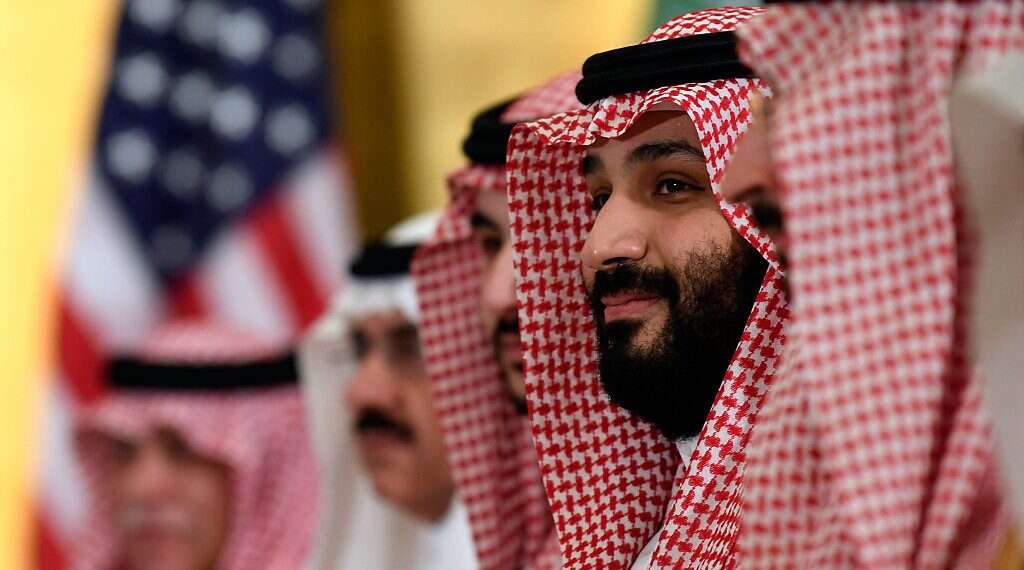by Oded Granot
Mohammed Bin Salman is very worried about the future, mainly the possibility that a new administration in the White House will harm his country's vital interests.
 |
| Saudi Arabia's Crown Prince Mohammed bin Salman listens during his meeting with US President Donald Trump on the sidelines of the G-20 summit in Osaka in 2019 | Photo: AP Photo/Susan Walsh, File |
Israeli flags were not flying in Neom, the futuristic Saudi "smart" city being built on the shores of the Red Sea. National anthems, too, were not played. A photograph with the Saudi crown prince and Prime Minister Benjamin Netanyahu wasn't handed to the press, and the official statements emanating from Riyadh only mentioned the bilateral meeting between the Saudi leader and US Secretary of State Mike Pompeo.
The Saudi foreign minister, who just a few days ago declared there would be no normalization with Israel before it reaches an agreement with the Palestinians, hastily denied via a tweet on Monday that the meeting with the Israeli premier happened.
Follow Israel Hayom on Facebook and Twitter
The only plausible inference from the denials in Riyadh is that the young Saudi leader, Mohammed bin Salman, for whom the gigantic Neom initiative comprises part of the vision for marching his country into the future after its oil reserves dry up, still fears making his country's relations with Israel public. These relations, which were kept under wraps for many years, were significantly bolstered over the past four years of US President Donald Trump's presidency.
The crown prince's concerns stem from his father's opposition to any upgrade in relations with Israel that don't coincide with the Arab peace initiative spearheaded by Saudi Arabia nearly 20 years ago, and from assessments that prematurely declaring normalization with Israel could create a rift within the Saudi monarchy – which could sabotage his chances of becoming king.
None of this has prevented the crown prince from energetically encouraging a host of other countries to normalize diplomatic relations with Israel – namely the United Arab Emirates, Bahrain in the Persian Gulf and Sudan in eastern Africa. On Monday, incidentally, Israel sent its first delegation to Sudan to discuss economic and humanitarian cooperation.
Bin Salman opened his country's skies to Israeli flights and signaled, on more than one occasion, that he will not mortgage Saudi Arabia's interests for a resolution of the Israeli-Palestinian conflict.
All these factors notwithstanding, Bin Salman went ahead with the Netanyahu and Pompeo meeting in Neom, despite the risks of a leak to the media. The reason: Bin Salman is very worried about the future, mainly the possibility that a new administration in the White House will harm his country's vital interests. He is concerned that a Biden administration could return to the nuclear deal with Iran, creating conditions that will only enhance Tehran's appetite for undermining the Saudi monarchy and helping the Houthi rebels in Yemen target the kingdom's oil facilities.
Bin Salman is also worried that a new American administration could be far less tolerant than Trump about human rights violations in Saudi Arabia.
It was amid this backdrop that the alleged non-meeting took place on the Red Sea shores. The Saudi crown prince wants a united front with Israel against the new American administration and its approach to the Iran nuclear deal and he is relying on Israel's past warm relations with Biden's people to also help him open a new page between Riyadh and Washington.
He wants all of this, as stated, without having to sign on the dotted line of a peace deal with Israel and perhaps even open an embassy in Tel Aviv or Jerusalem.
Oded Granot
Source: https://www.israelhayom.com/2020/11/24/before-peace-the-saudi-crown-princes-real-interests/
Follow Middle East and Terrorism on Twitter
No comments:
Post a Comment